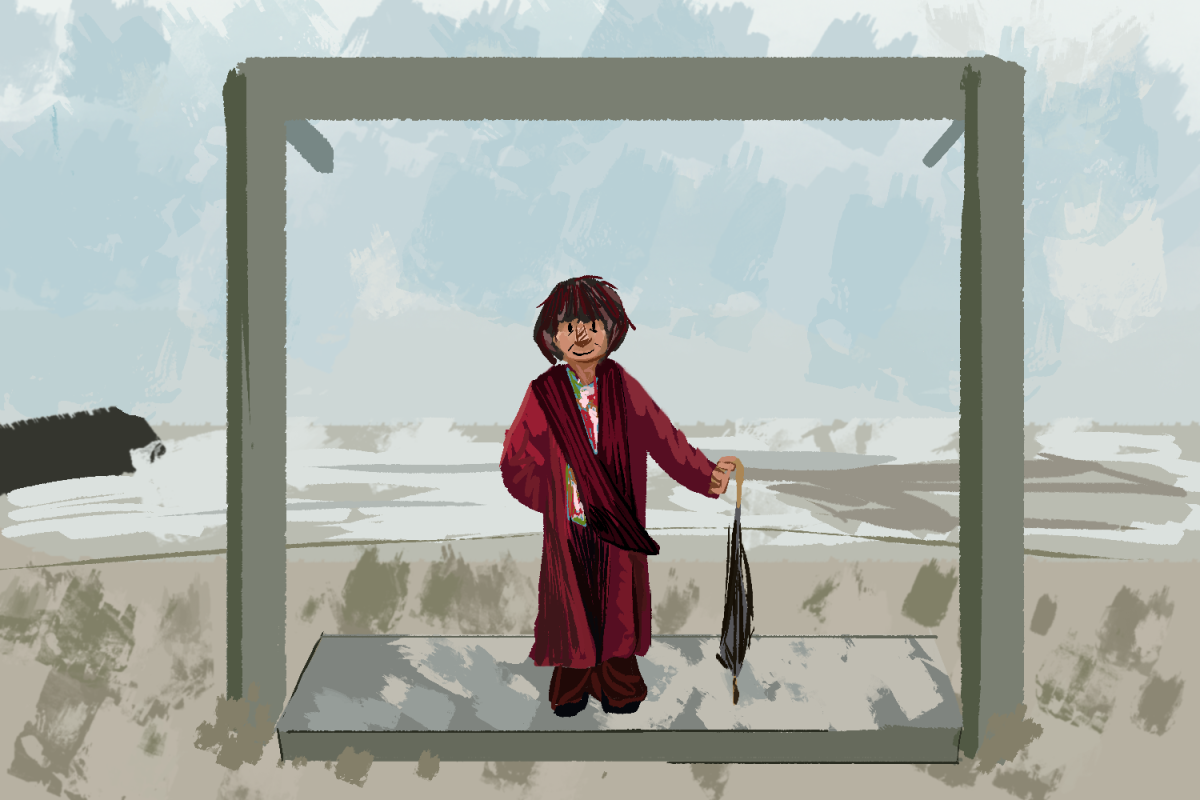This semester, I signed up for an advanced art history seminar all about the life and work of renowned French filmmaker Agnès Varda. I didn’t know much about her, but I always had an interest in female artists who pushed creative boundaries. The first film we watched in class was Varda’s 2008 documentary, “The Beaches of Agnès: Exploring the Memories of a Legendary Filmmaker,” and it was an incredible introduction to the life and work of the woman that many hail as the “grandmother of the French New Wave.”
Varda released “The Beaches of Agnès” after her 80th birthday, only 11 years before her death in 2019. The film is an autobiographical collage of sorts, looking back on her life through photographs, recreations of memories, interviews and archival footage. While a bit disorganized, the film’s narrative is a testament to Varda’s unique life and portfolio of work, and its quirks are what allows her eclectic personality to shine through.
The self-portrait stars Varda and takes viewers through the story of her life, though not in the typical fashion. The film brings the audience through Varda’s childhood in Belgium, her unorthodox career as a photographer and as one of the most revered modern filmmakers, her marriage to fellow New Wave filmmaker Jacques Demy, her love for cats and much more.
While there are some true-to-genre recreations of memories by younger actors, such as scenes on the waters of Belgium, Varda, in her old age, manages to intrude the story with voiceovers and reflections from her octogenarian point of view. Instead of recreating scenes from the inside of her childhood home using young actors, Varda chooses to return to the home and place herself within it, interviewing the new owner of the house.
There is also a scene of acrobats on a trapeze on the beach, though this activity isn’t something that Varda ever did — it is instead a realization of a strong fantasy she had as a child. Despite these veers from the typical autobiographical style, I’ve still come to think that “The Beaches of Agnès” is an autobiography in its truest form. Varda, in creating the film’s disorganized composition, embraces the rather messy nature of life.
In including an imagined trapeze, Varda makes space for the way her wild imagination contributed to her success. And in revisiting her childhood home, Varda underscores the non-linear path of life. While less realistic, it is extremely truthful, as it is impossible to look back on youth without the perspective we have gained with age. An organized narrative would have been a disservice to Varda, and “The Beaches of Agnès” is an autobiography that truly captures the nuances of a fruitful life.
Contact Alexa Donovan at [email protected].


























































































































































